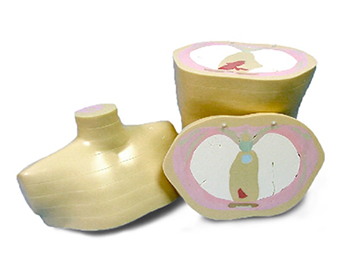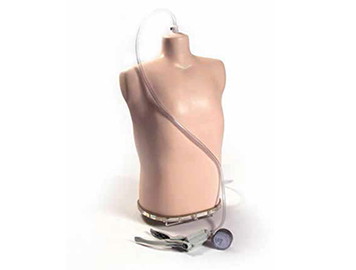Product
다올팬텀 제품을 소개합니다.
Anthropomorphic Phantom
| 제목 | Pediatric Anthropomorphic Training Phantom |
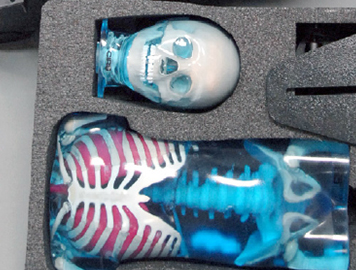 SPoRT TMSectional Pediatric Radiography Trainer Now available with common pediatric fratures and flexed appendages 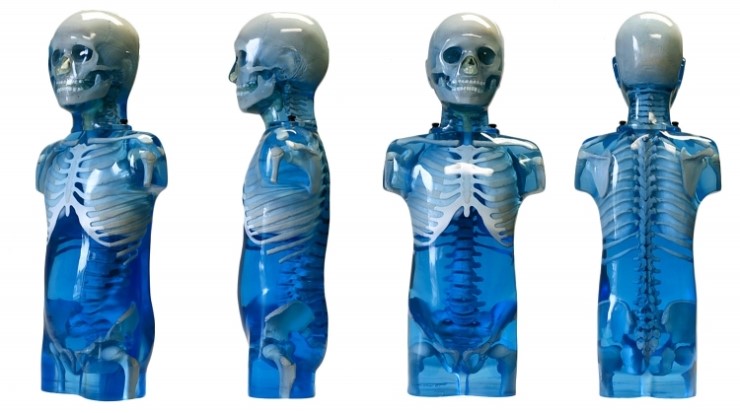 An ideal addition to any imaging department or Radiologic Technology training program, the CIRS Model 715 Series can assist in the monitoring, training and improvement of parameters and protocols common to most pediatric imaging procedures. SPoRT™ is designed to aid teaching and improvement of patient positioning, collimation and anatomical comprehension and it’s wide range of features facilitate effective instruction of safe, high quality, pediatric imaging. The phantom represents a typical 5-year old in both size and structure, making it portable and easy to position. The full body with head, arms and legs measures 110 cm (43 in) tall and weighs 20 kg (44 lb). The series consists of six sectional phantoms available separately or as a complete set. Right extremeties are available in extended or flexed configurations. Left arm and leg are available with or without embedded fractures. The fracture versions contain the most common pediatric fracture types, including buckle fracture to tibia and common fracture to fibula; fracture to first metatarsal; radius fracture with open reduction and hardware and a common fracture to second intermediate phalange. Components are made from propriety urethane and epoxy materials that mimic X-ray attenuation properties of human tissues for both diagnostic and therapy energy ranges (50keV-25MeV). The materials are durable, impact resistant and suitable for continuous handling. Transparent soft tissue facilitates visual instruction of anatomical landmarks. SPoRT™ can be used in film radiography, CR, DR and Computed Tomography. The Standard for Anatomical Comprehension, Instruction and Training Benefits: •Facilitates hands on training and feedback in an exciting and memorable way • Demonstrates the need for specialized views with certain pathologies •Allows for effective demonstration of changes in techniques •Promotes sensitivity and proficiency in patient handling and positioning • Effectively evaluate trainee performance Features: •Deciduous and descending teeth with distinct dentine and enamel •Fully open sinus cavities •Anthropomorphic lung structure and vasculature •Bones contain cortical/trabecular distinction, growth plates and ossifications typical to a 5-year old •Certain bones of the spine and pelvis are atypical to a healthy 5-year old. The bones are modeled from human samples that include various anomalies •Specific pathologies can be custom manufactured if required •Translucent soft tissue to enable visualization of bony anatomy •Five most common fractures available in left appendages •Additional fractures or pathologies can be custom manufactured upon request Optional large positioning stand and carry case available 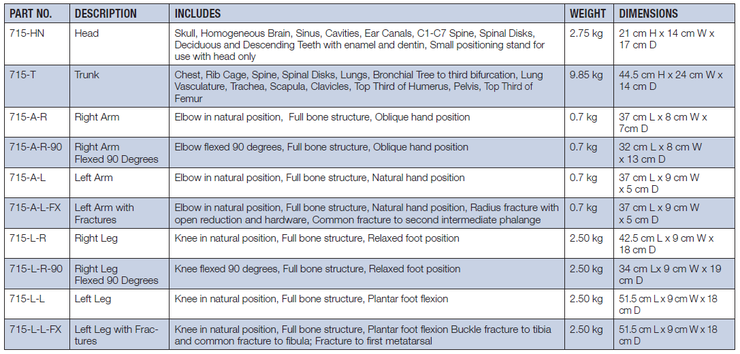  |
|
| 카테고리 | 인체모형 |
| 문의하기 |




